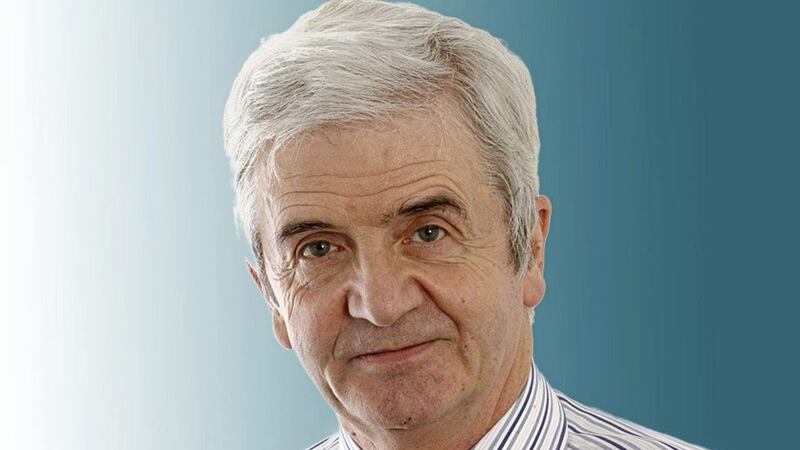Like every other month in Ireland, September brings an anniversary. Oh good, you say, which one is it this time?
September 1155, when Henry II first proposed invading Ireland? The execution of Robert Emmet in September 1803, or perhaps the opening of Scoil Éanna by Patrick Pearse in September 1908?
Important though those anniversaries are, it is none of them. It is an event which fuelled Britain's Brexit vote, re-wrote the electoral politics of the 26 counties and brought down Stormont. Despite that, this anniversary will pass largely unnoticed here.
The event? It is ten years since the world's banking system collapsed, almost destroying global capitalism. Oh dear, you say, how dull. Dull maybe, but it moulded modern Ireland.
So what happened and why did it affect Ireland more than most? The first sign of trouble was when the US financial services firm, Lehman Brothers, collapsed in September 2008. But like so many ills in our society, it all began with Margaret Thatcher.
Together with Ronald Reagan in the 1980s, she allowed banks more operational freedom, promoted the financial sector at the expense of manufacturing and reduced wages through anti-union legislation. Payday loans would replace wage rises and debt would replace savings.
Successive US and UK leaders followed the dogma that economies did not need government involvement, because the free market would regulate itself. But since there are no known limits to human greed, which drives the market, the system collapsed.
For the first time since the 1920's depression, Bill Clinton allowed banks to use customers' deposits for stock market speculation (on the basis that greed was good).
Tony Blair introduced "light touch" regulations for banks, which meant that every man, woman and child in the UK would eventually pay almost £20,000 each to underwrite the banks' losses.
When both men came here for peace talks, no one challenged their views. Flags and sectarian power were more important to those in the newly reconvened Stormont, oblivious to the real world beyond Carson's statue.
When the crash came, the economic consensus was that survival depended on cutting government expenditure, when financial stimulus would have been better. But austerity triumphed and it was that austerity which caused so many of its victims in Britain to vote for Brexit. The pattern was repeated in the rust belts of the US, where the disillusioned voted for Trump.
Here, it eventually led to Stormont's collapse, because when the SDLP belatedly went into opposition, it left Sinn Féin exposed as practising austerity, which led the party to abandon the DUP. Today no party wants ministerial control of underfunded education, health or infrastructure. Austerity killed Stormont.
When the world's austerity barons met at the G8 Summit in Fermanagh in 2013, SF and the DUP helped to deploy 8,000 police officers, including 3,500 from Britain, to keep anti-globalisation protesters outside the county. When Sinn Féin should have been protesting, it stood firmly with the pro-austerity camp. It is with a delicious irony that the party now complains about Tory austerity.
The 26 counties suffered a double whammy: the global economic crash was accompanied by the collapse of an Irish credit bubble, fuelled by reckless bank lending. A year before the crash Fianna Fáil topped the poll, as it had done in every election since 1932.
Its failure to oversee the banks prior to their collapse and its decision to bail them out with taxpayers' money reduced the party's electoral support by half. Without the global crash, Leo Varadkar might still be in opposition and the 3,000 homeless children might have been housed with the €64 billion, which was used to pay off Irish banking debts.
The crash also led to one of the north's greatest financial scandals when, under a SF/DUP executive, the Irish government's property agent, Nama, sold off over £4 billion worth of property here for just £1 billion. We still know little about this secret deal.
So the rich became richer and the poor became poorer, a most unchristian development. But, as its support base drifted away, Ireland's main Christian church remained mute, even though Pope Francis has called unbridled capitalism "the dung of the devil".
The global financial crash affected all of us, but it will not feature in politics, sermons from the pulpit or even in university lectures in economics, which still largely preach that the free market is self-regulating.
Ten years after the crash, nothing has changed. We still fight over flags and when the next crash comes, as it inevitably will, both sides will fund the rich again. In Ireland we love anniversaries. Our problem is that we never learn from them.









